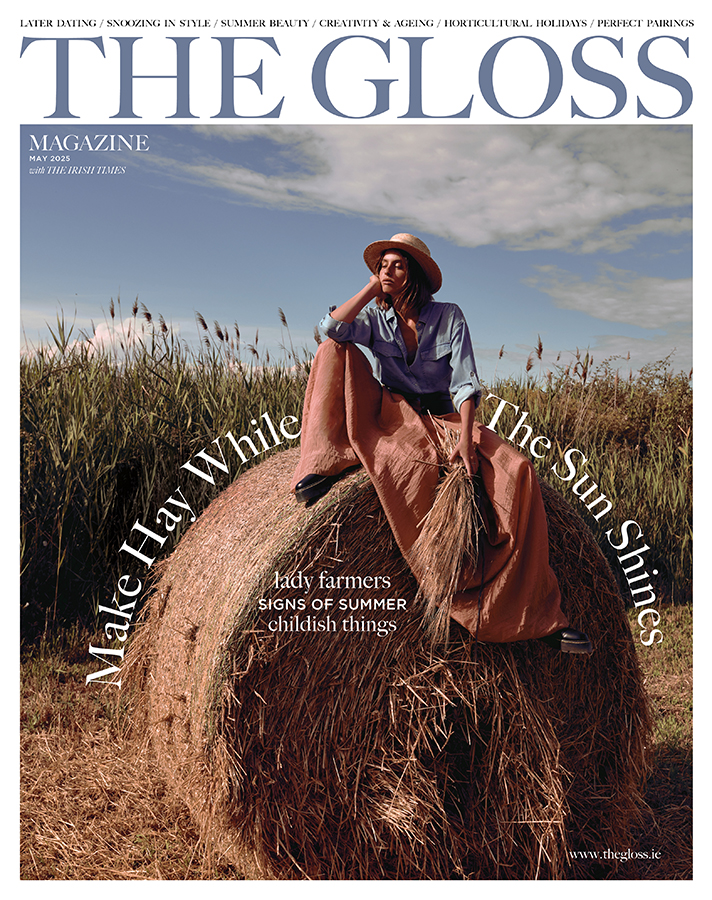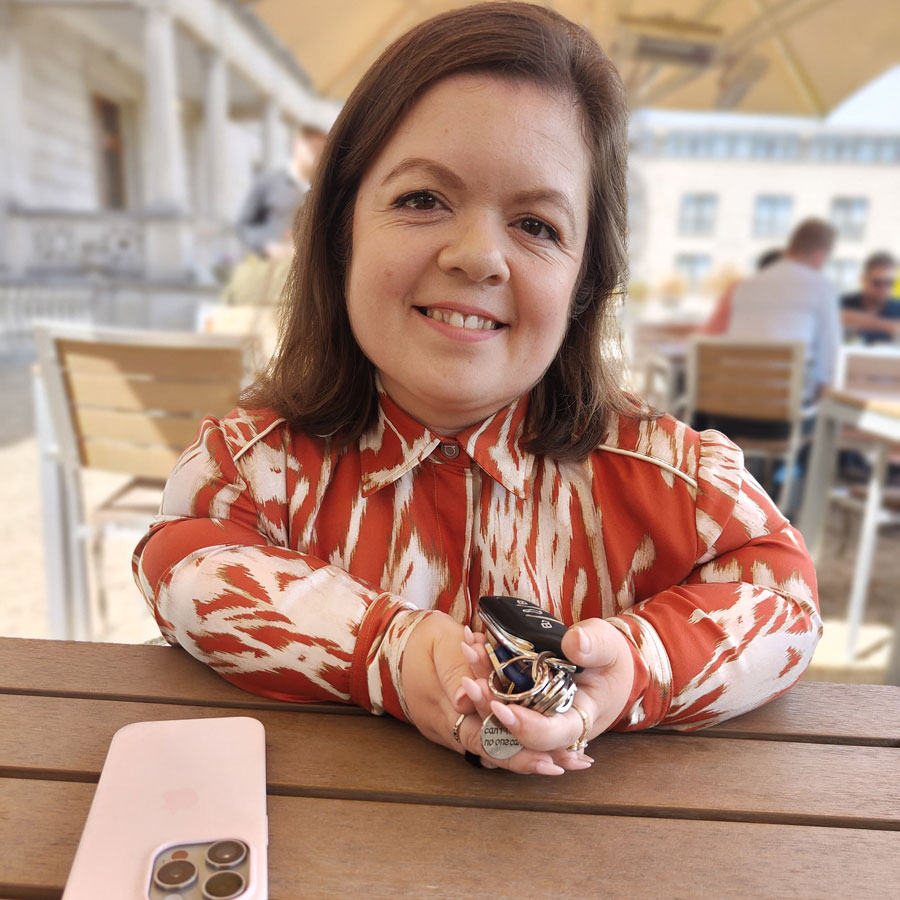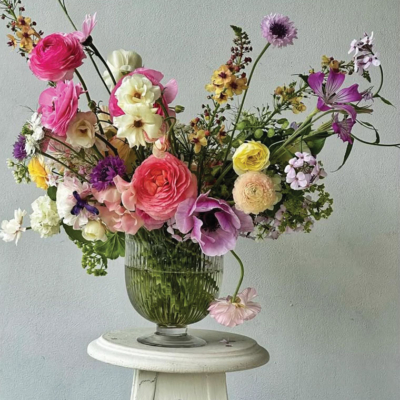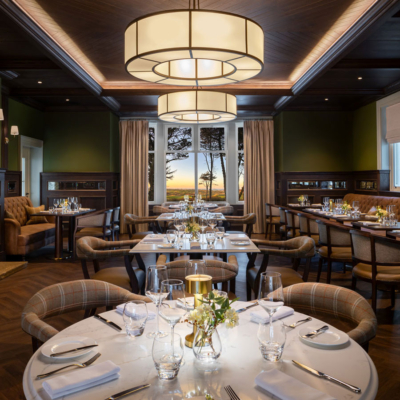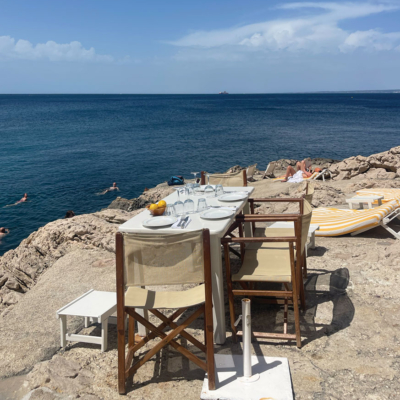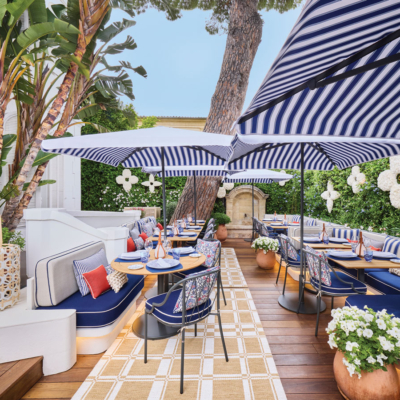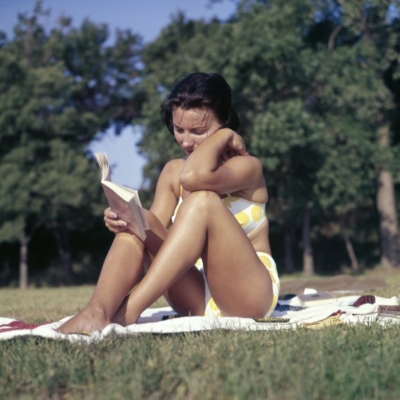Sinéad Burke shares two personal possessions that unlocked her interdependent life …
What is precious to you, for one reason or another? What memento would you never want to live without? THE GLOSS is proud to partner with AsIAm, Ireland’s National Autism Charity, to share a series of stories of celebrated people’s treasured possessions – from Colin Farrell, Sebastian Barry, Ardal O’Hanlon and Fiachna Ó Braonáin to Rachael Blackmore, Mairead McGuinness, Lynn Ruane, Alisha Weir and Orla Kiely, plus many more – that are often an expression, sometimes an extension, of themselves.
SEE MORE: Irish Stars Share Their Most Treasured Possessions
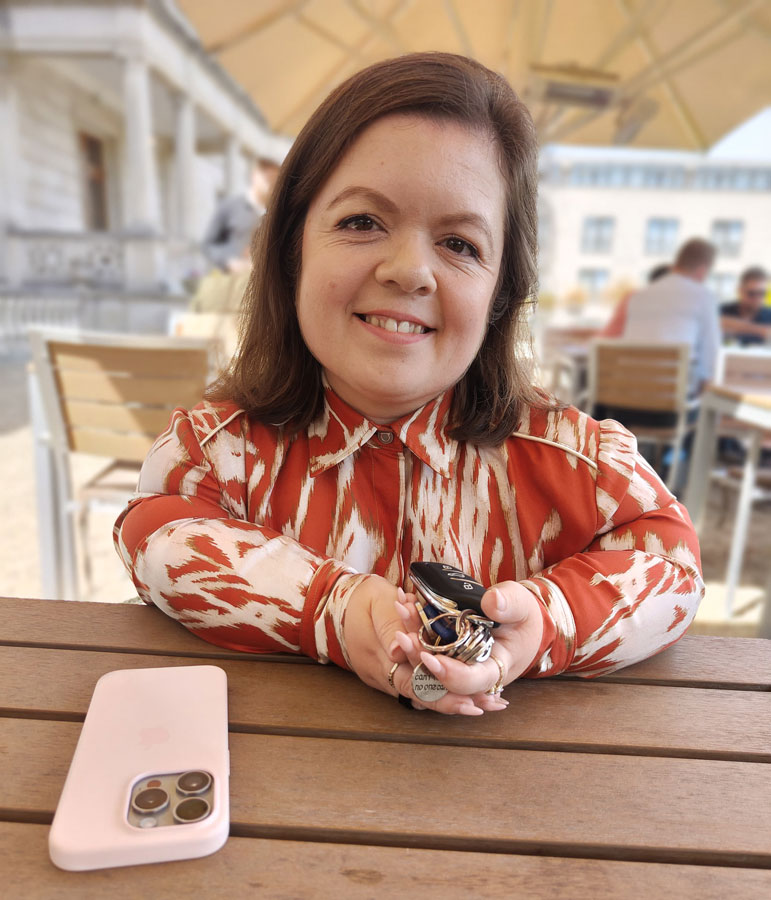
This month, entrepreneur and advocate Sinéad Burke shares her story. Sinéad has Achondroplasia, the most common form of dwarfism, a genetic condition inherited from her father. Although trained as a teacher, Sinéad first developed a profile as a blogger, speaking about the lack of accessibility in fashion. She now leads the global accessibility consultancy, Tilting the Lens, based in Ireland. She has spoken all over the world, including at The White House, TED Talks and Davos. She hosted a podcast with Lemonada Media called As Me with Sinéad and wrote an award-winning children’s book entitled Break the Mould.
“My phone and my keys – two inanimate, but intimate objects – represent opportunity, agency, dignity and interdependence. I don’t describe these objects as ones of independence, even though they could be widely defined as such. Yes, they symbolise my car, living in a place that is accessible to me, and being self-employed, which have all been routes to a version of independence. But for me that is a tainted word, as independence is often something that disabled people are measured against to be seen as valuable, to be equal, to prove their worth. It’s an impossible barometer when so many systems and mindsets are deliberately designed for you not to succeed.
“I have the privilege of leading a global, strategic accessibility consultancy, but I can’t and don’t do it alone. No-one does.”
Non-disabled people rarely have to prove their independence, but in reality we are all interdependent on each other. That’s what these objects represent. For example, I have an electric car, but public car chargers do not have to meet accessibility requirements, so I often have to rely on strangers for support.
These objects represent personal and professional milestones, and symbolise the distance I’ve travelled. Whereas other objects show how much we must change and advance in accessibility, in disability rights and in society’s expectations of disabled people.” @thesineadburke
AsIAm, founded by Adam Harris in 2014, has a vision for Ireland as a place where every autistic person is accepted “as they are” – equal, valued and respected. AsIAm provides community support through advice, advocacy, support and special interest groups for children and adults with autism. AsIAm provides training programmes in awareness and inclusion, and supports businesses to successfully recruit and employ autistic candidates. The charity operates an information line (0818 234 234) and provides support via instant messaging and email (support@asIam.ie). Visit www.asiam.ie/support-our-work/donate/ to donate.




